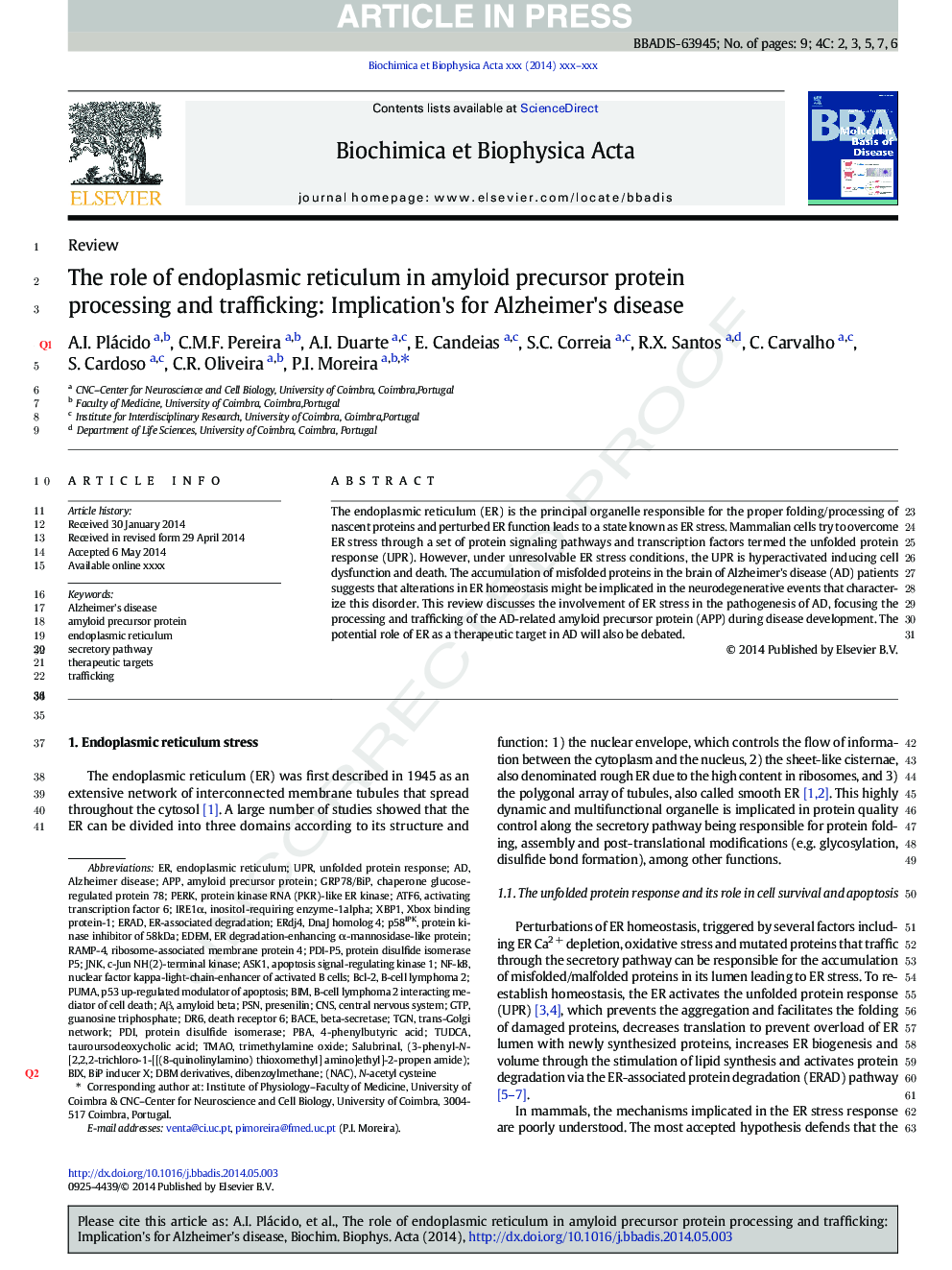| Article ID | Journal | Published Year | Pages | File Type |
|---|---|---|---|---|
| 8260059 | Biochimica et Biophysica Acta (BBA) - Molecular Basis of Disease | 2014 | 9 Pages |
Abstract
The endoplasmic reticulum (ER) is the principal organelle responsible for the proper folding/processing of nascent proteins and perturbed ER function leads to a state known as ER stress. Mammalian cells try to overcome ER stress through a set of protein signaling pathways and transcription factors termed the unfolded protein response (UPR). However, under unresolvable ER stress conditions, the UPR is hyperactivated inducing cell dysfunction and death. The accumulation of misfolded proteins in the brain of Alzheimer's disease (AD) patients suggests that alterations in ER homeostasis might be implicated in the neurodegenerative events that characterize this disorder. This review discusses the involvement of ER stress in the pathogenesis of AD, focusing the processing and trafficking of the AD-related amyloid precursor protein (APP) during disease development. The potential role of ER as a therapeutic target in AD will also be debated.
Keywords
Related Topics
Life Sciences
Biochemistry, Genetics and Molecular Biology
Ageing
Authors
A.I. Plácido, C.M.F. Pereira, A.I. Duarte, E. Candeias, S.C. Correia, R.X. Santos, C. Carvalho, S. Cardoso, C.R. Oliveira, P.I. Moreira,
